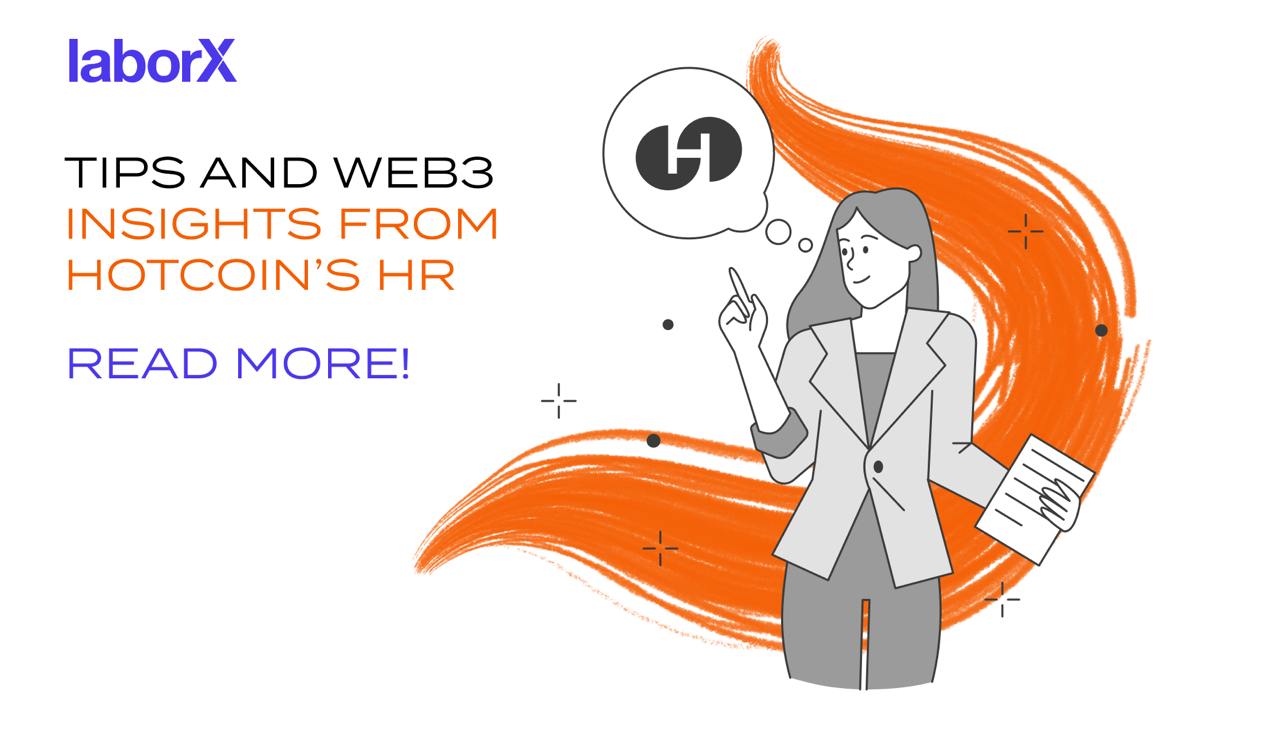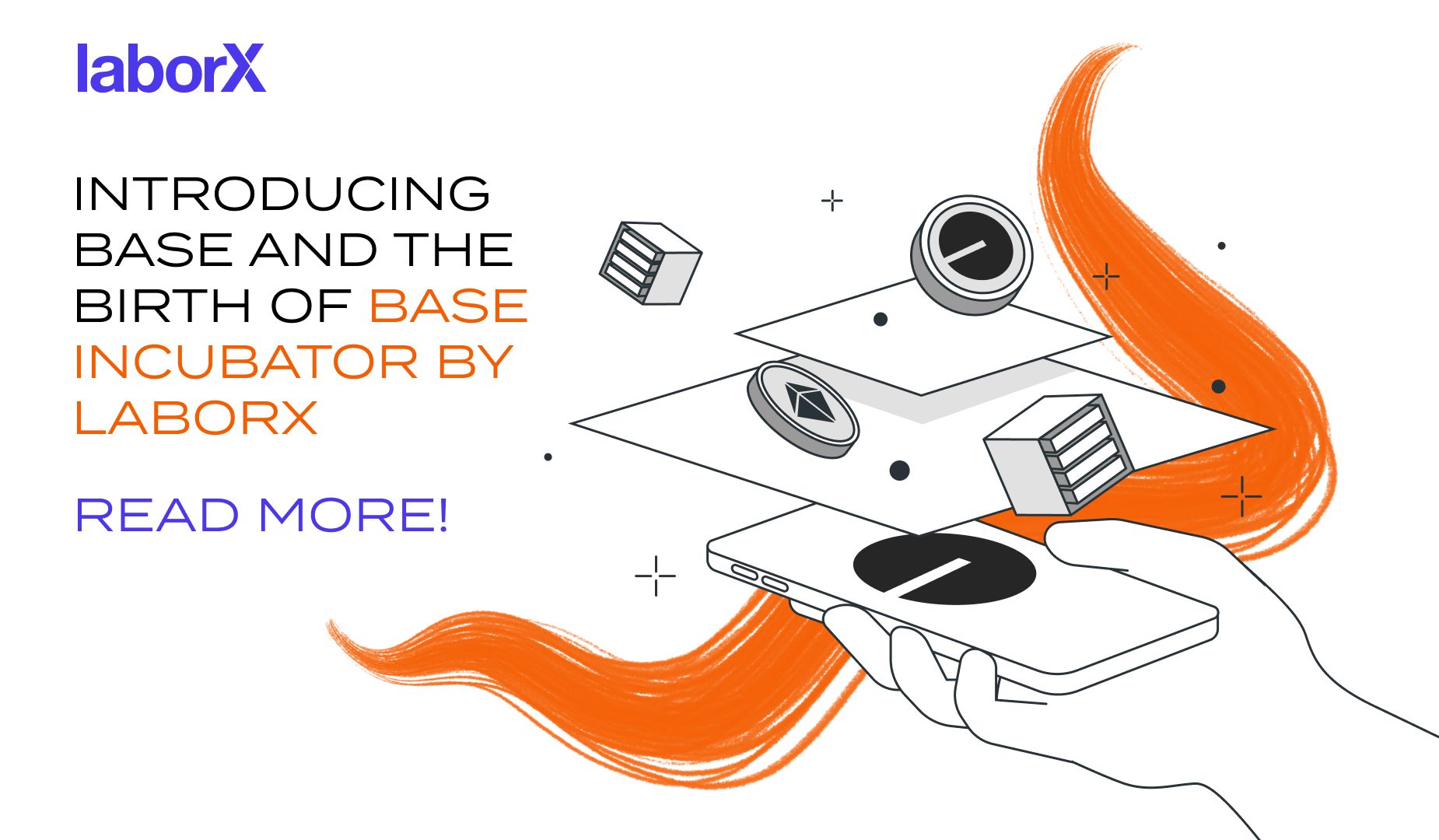
Embracing Change: HR in the World of Digital Assets
Hotcoin’s HR shares her journey from traditional industries to the world of Web3 and crypto, highlighting key insights on thriving in this space.
Read
Losing your job can be tough, but with a little planning, you can come out of it in a better position than ever!
In today’s uncertain work environment, both employees and businesses are used to the steady churn of personnel. Whereas it was once typical to spend many years – or even your entire working career – in the same job, today there is far less employment security. At a time of economic turmoil, companies are even more likely to reduce their workforces to save money.
Nowhere is that more true of the Web3 sector, where new opportunities arise all the time – but equally, the market can be tough on startups and major companies alike. Cutbacks are a common feature of bear markets.
If you happen to be affected by budget-trimming exercises and need to find a new job, it pays to have a plan – and, ideally, to have put it into action long before you actually need it.
The time to fix the roof is when the sun is shining. If you’re in a good job, earning well and enjoying what you’re doing, take some time to plan for a future in which you may be unemployed and looking for another opportunity.
At the time, this may feel like something that is far down your list of priorities. However, imagine if you were fired tomorrow. What would you do? More to the point, what would you wish you had done six months or a year earlier?
For example, it’s smart to have at least six months’ worth of outgoings as savings – money that you can access at any time. This sounds like a lot, and for many people it is. Bear in mind that if you lose your job, you will probably cut down on discretionary spending (like holidays, meals out, entertainment, and so on), and may save on commuting costs.
Do the best you can by putting away what you can afford each month from your current pay, while you are in work. The aim is to have a cushion of funds that will get you through a period of worklessness. If you can’t put aside enough for six months, aim for three or four. Don’t worry that this money isn’t earning a good return: the whole point is that it’s liquid cash that’s there for you when you need it.
Also take regular time to pave the way for a future job hunt. Maintain your connections on LinkedIn and Twitter/X, and ideally expand your networks of contacts. Again, it won’t be something that you necessarily need to do as part of your current position – but you’ll be glad you laid the groundwork if and when your next job hunt starts.
If the worst comes to the worst, and you do lose your job, don’t panic. When you hit a major setback like that, it can be tempting to take drastic and immediate action. However, decisions made in haste and under stress – particularly financial decisions – are often bad ones. Sleep on it. It’s unlikely that a day or two will make much difference, and it could give you some valuable perspective.
For example, if you hold a significant amount of crypto, you may need to sell some of it so you have funds to keep you going. But how much should you sell, and which coins? You could easily come to regret making a forced decision under pressure.
Instead, take a little time to audit your finances – all your assets and all your outgoings, from rent or mortgage payments to Netflix subscriptions and your daily coffee. (Ideally, this will be an exercise you can do from the security of a good job, but if you have not managed to do that, now is definitely the time!)
Take a look at what you can trim from your outgoings, and whether you need to convert any assets to liquid cash – and, if so, which ones make the most sense to sell. This will depend a lot on your overall position and risk tolerance, so there’s no one-size-fits-all solution. As a suggestion (not financial advice), be wary of selling your blue-chip assets, crypto or otherwise, and holding onto lower-quality ones. If you’re uncertain, one approach would be to sell 10% of everything, keeping your exposure the same as a percentage but reducing your overall risk while you navigate unemployment.
As well as dealing with the immediate and pressing matters of ensuring you can make ends meet, you’ll want to start your new job search. Ideally, this is something you’ll have been preparing for anyway, by maintaining your networks and fostering useful connections. That might be through direct messages, ‘checking in’ with former colleagues and acquaintances from time to time; replying to posts you find valuable and interesting; reaching out to new people and accounts on LinkedIn and Twitter/X, and so on. In general, the aim is to remain engaged and well-connected, so that if you do need to shift the conversation to your job search, you’re not cold-calling or getting in touch out of the blue after a gap of many months or years.
Again, if you haven’t been laying that groundwork, there’s no time like the present. Be honest about the reasons you are messaging them, though ideally without sounding desperate. Check out what jobs are on offer at companies where you know people. If there’s something that interests you, you can always use that as an opportunity to reconnect with old acquaintances and ask for their thoughts, including any tips about what the organisation is looking for and whether you might be suitable for any roles.
Being fired or made redundant can be a knock to your confidence. So much of our identity and self-worth is bound up in what we do (and, for many people, how much they earn).
For the same reasons, this can also be a time to reassess what really matters to you – something you’ll rarely have time or opportunity to do in the day-to-day busyness of work.
It’s easy to go through life having decisions made for us. Relatively few of us, looking back, can say that we planned our career paths meticulously and ended up exactly where we intended to be. Instead, we take the opportunities that are offered to us, try new things, make compromises in the interests of earning a better income, or gaining more perks, and so on. There’s nothing wrong with any of this. However, it’s easy for all of these little choices to add up, and for us to end up far from where we originally wanted to be.
Most of the time, we accept this as the price of having a decent income, or perhaps having a job at all. Not many of us are in a position to throw the cards up in the air and start again from scratch. However, if you suddenly find yourself unemployed, it’s the perfect opportunity to reassess your career trajectory and make sure it aligns with your values. In short, it can be a blessing in disguise.
For example, perhaps this is a good time to pivot in your career, or even try something completely new. Perhaps you want to take on more responsibility and look for a higher-paid job; perhaps, conversely, you’re at a stage when you want to work a little less and create better boundaries between work and home life – maybe because you have young children, or are in a position where you no longer need to earn as much as you once did. Maybe you want to pick up some freelance work, and put together a portfolio of interesting part-time jobs and gigs, rather than look for a full-time, permanent role. Or maybe you’re ready for a change and want a job that offers greater impact and gives something back – whether that’s in the Web3 sector or outside of it.
Unemployment is a golden opportunity to make such decisions. If you pass up on the chance now, it’s unlikely you’ll get one as good until you’re next unemployed.
Having some time out from full-time work is also a fantastic time to learn new skills, either for your own personal reasons, or to help you in your future employment. Just like reassessing your overall career direction and priorities, it’s unlikely you’ll have a better opportunity until you’re either unemployed again, or retired – so make the most of it!
In some ways, being unemployed is like a job in itself. You’ll need to put time into researching and applying for new positions, attending interviews, and so on. It’s also a good opportunity to catch up on some sleep, work on your health and fitness, and enjoy some downtime.
But these activities should not take up all of your time. Ideally, you will carve out at least a few hours per week for personal and professional development. Are there careers that appeal to you that require skills you don’t have? Is it a good opportunity, for example, to get to grips with AI software, check out a coding course, figure out how to build websites, or any one of a hundred other things that could give you an edge?
Alternatively, maybe you want to spend more time on personal projects – take up a new hobby, work on your running times or lifting goals, or learn a new language.
If you’re not sure what areas you might develop, then think about speaking to a career counsellor to help you identify transferable skills and current strengths, which may be applied to different job opportunities or career paths. They can also discuss your goals more broadly, tease out what you would find fulfilling, and help you to pinpoint jobs and careers you may otherwise never have considered.

Lastly, being unemployed can be tough. From a purely practical standpoint, you may need to cut back on luxuries and even some basics (such as buying cheaper brands of food), if you really need to economise. If you don’t have an adequate financial cushion, it’s natural to worry about making ends meet. Then there is the emotional impact of being out of work, which provides so much structure to our days, sense of identity, and self worth – rightly or wrongly.
All of this can take its toll, making you stressed and anxious, impacting your sleep, and detracting from your overall quality of life – as well as affecting those around you. It doesn’t have to be that way, and the more you plan in advance, the better you’ll avoid some of these pitfalls. However, it’s quite common for unemployment to undermine your mental health. In the worst cases, it can lead to depression, which makes motivating yourself to find another job harder still.
Hopefully you have a good network of friends and family who can provide practical and emotional support to help you get through this temporary period. Even if you do, though, you may benefit from seeking counselling, which can help you reframe your experience of unemployment and stay positive.
Once you do find a new job (though it may not feel like it at times, the overwhelming likelihood is that you will find another job you enjoy and that provides a decent salary), you may need to deal with the financial consequences of a period of unemployment. If you are in debt, it can take a while to dig yourself out. Focus on paying off the high-interest debt, such as credit card debt, first. This is also a good time to get into good habits, stashing some cash and building up that contingency fund in case there’s a time when you’re unemployed again. Additionally, maintain the practice of engaging with your existing contacts and building up your networks.
Don’t forget to take time to celebrate your new job, and possibly career, though – you made it!

Hotcoin’s HR shares her journey from traditional industries to the world of Web3 and crypto, highlighting key insights on thriving in this space.
Read
Discover how Web3 is reshaping HR practices with insights from a leading expert in the field.
Read
Discover Base's innovative L2 solution addressing scalability, security, and user experience challenges in crypto. Learn about Base Incubator by LaborX, fostering growth and innovation within the Base ecosystem.
Read